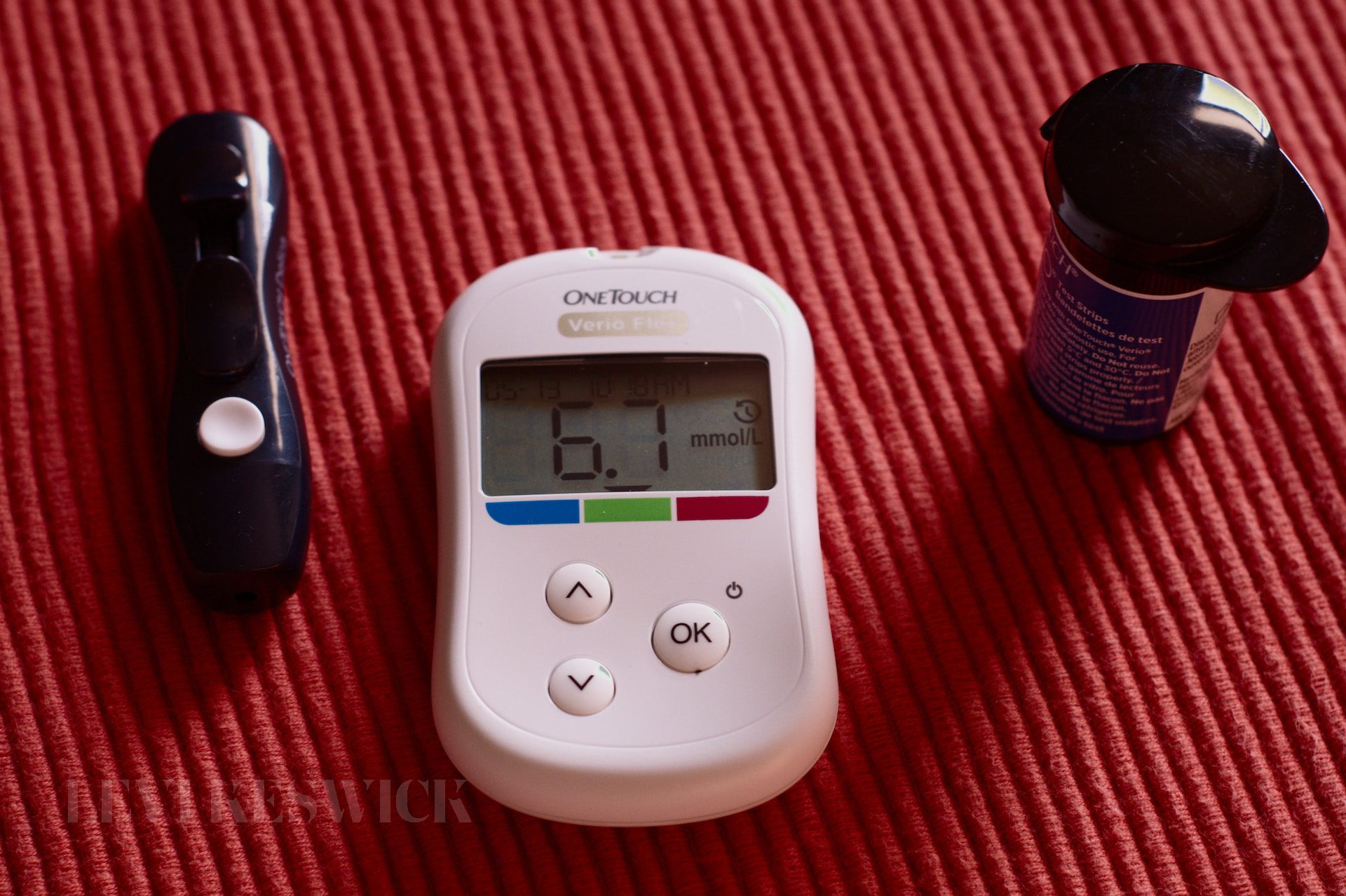Keeping your blood sugar levels in check is essential for maintaining optimal energy, feeling good, and avoiding serious health conditions. If you’re diabetes-free, then chances are that you don’t understand the importance of monitoring and balancing your glucose levels daily—but trust us; it matters! In this blog post, we’ll discuss why it’s important to keep track of your blood sugar levels, how to do so efficiently, and also some dietary tips to better manage it. Whether you’re newly diagnosed or trying to maintain healthy numbers – let’s dive into understanding just how vital monitoring glucose can be.

Understand What Blood Sugar Is and How It Affects Your Body
Blood sugar, also known as glucose, is a critical part of the human body and is one of the main sources of energy. Knowing how to effectively manage blood sugar levels is vital for optimal health and productivity. Our bodies naturally produce sugar from foods we eat and store it in our bloodstream to use as energy throughout the day. If glucose levels rise beyond normal values or drop too low, it can lead to significant consequences that impact all aspects of our well-being. That’s why understanding what blood sugar means and how it affects our body is so important for people today. Becoming aware of how vital managing our blood sugar levels can be will allow us to take charge and make proactive measures that result in more balanced and healthy lives. People who struggle with it use many things to help them manage it. Also, diabetic socks sold for men and women are helping to keep your feet healthy and comfortable. Wearing them often can help with preventing long-term complications.
Know the Main Causes of High and Low Blood Sugar Levels
It’s important to understand the causes behind high and low blood sugar levels, as this will help you make informed decisions about diet, exercise, medications, and lifestyle modifications. High blood sugar is often caused by overeating or skipping meals, consuming simple carbohydrates such as white bread, pasta, or cookies, not being active enough, drinking alcohol on an empty stomach, and taking certain medications that can raise glucose levels. Low blood sugar is usually caused by eating too little (especially in type 1 diabetes), intense exercise without adequate food intake for energy, taking too much medication (such as insulin), or stress. Knowing the main causes of high and low blood sugar levels will empower you to create a plan of action which includes managing your diet and medication consumption appropriately to keep your levels stable.
Figure Out the Best Diet for Controlling Your Blood Sugar Levels
Figuring out the best diet for controlling your blood sugar levels is an important step in managing them efficiently. Any dietary changes to monitor and maintain balanced glucose levels should be done in consultation with a medical professional, who will help you create a comprehensive plan that works best for your body’s unique needs. The goal is to find meals that contain the right balance of nutrients to promote blood sugar sustainability. Certain types of carbohydrates may be appropriate in moderation, while others should be limited due to their tendency toward spiking glucose levels quickly. There are also key vitamins and minerals that your body needs to stay healthy; finding the right source of these vital components can play a critical role in keeping your blood sugar levels stable over time. With the assistance of a specialist, you’ll have no trouble figuring out the best diet for controlling your blood sugar levels — and taking back control of your health.
Monitor Your Blood Sugar Regularly Using a Glucometer or Other Methods
An easy way to stay proactive is by monitoring them regularly with a glucometer or other methods, such as visiting your physician for a routine blood test. Using a glucometer to test your blood sugar is simple and quick to do at home, giving you an understanding of what foods and lifestyle decisions are affecting your levels daily. It’s also essential to get an understanding of how certain medications are impacting your numbers, so be sure to take them into account when tracking. With the knowledge gained from using a glucometer, you can work with your doctor or health practitioner to ensure you’re making the best choices for managing both short-term and long-term fluctuations in glucose.
Learn How to Adjust Your Diet, Exercise, and Medications to Keep Your Blood Sugar in Check

For those with diabetes, it can be a particularly challenging task, taking serious dedication and monitoring dietary changes, exercise regimes, and medication. Taking the time to adjust your diet, exercise, and medications isn’t easy, but is critical for controlling high blood sugar levels. To make this process less overwhelming, it’s important to start small and assess progress regularly — whether that means making a few changes at once or gradually introducing new habits over time. With the right approach, you can make smart lifestyle adjustments to ensure your blood sugar levels remain within the healthy range longer term.
Understand the Importance of Regularly Monitoring Your Insulin Levels and Taking Steps to Avoid Spikes or Lows
Many people living with diabetes need to regularly monitor their insulin levels. But many don’t realize just how important it is to do so. Understanding your insulin levels and taking active steps to avoid spikes or drops can improve overall health, lower the risk of diabetes-related complications, and even reduce associated healthcare costs. When it comes to insulin management, there are several things you can do to stay on top of your blood sugar levels. From eating correctly and tracking medications to exercising regularly and taking breaks when needed, vigilance is key in understanding and controlling the impacts of diabetes.
Our bodies need to maintain a healthy balance of blood sugar levels to function properly. Understanding the basics of what blood sugar is and how it affects your body is important in maintaining this balance. Knowing the causes of high and low blood sugar levels as well as the best diet that can help you control them are key steps toward keeping your blood sugar in check. Monitoring your levels regularly with a glucometer or other methods, adjusting your diet, exercise, or medications when necessary, and regularly checking insulin levels can help avoid spikes and lows. All of these combined strategies can ensure that you have healthy and balanced blood sugar levels, improving overall health and well-being.







